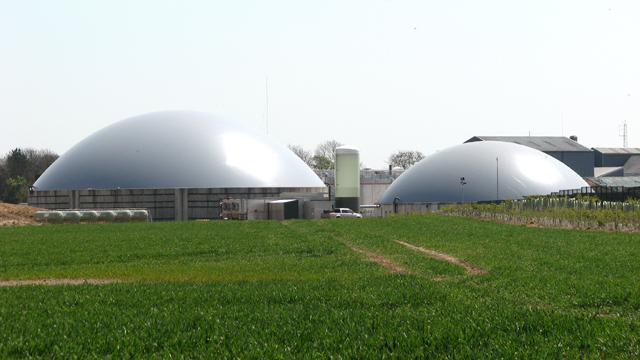Using Small Scale Anaerobic Digestion Plants on Dairy Farms to Reduce GHG Emissions and Potential to Improve Farm Profitability.

With Ireland expected to reduce its agriculture Greenhouse Gas emissions by up to 30% by 2030, drastic measures need to be taken by not only farmers, but by the government too. Ireland failed to reach its goal of reducing GHG emissions by 20% in 2020, only reducing them by 5%-6%. Anaerobic digestion (AD) is a promising technology that can aid in reducing GHG emissions by treatment of livestock manure and other organic wastes on Irish farms. In addition to GHG reduction, AD plants possess additional advantages such as on-site energy generation, the provision of a nutrient rich fertiliser from the digestate, and the reduction of odour and pathogen loads. Recently published research in the peer reviewed journal Energies explores the economic and environmental analysis of small scale anaerobic digestors (SSAD) on Irish dairy farms.
The study looks at how SSAD may be implemented on dairy farms with herd numbers ranging from 50 – 250 dairy cows and co-digestion provided by grass grown on accessible land. On farms with dairy herds of more than 100 cows, the study concluded that SSAD technology is profitable over the plant’s lifetime, with payback period of 8 – 13 years – could be further reduced if government funding was provided. In addition, dairy herds with more than 100 cows showed a net CO2 reduction ranging between 2059 and 173,237 kg CO2-eq. yr−1 (O’Connor, et al., 2020).
“Although SSAD plants were shown to be viable, significant government supports are still needed to achieve financial returns that are attractive to investors. One support explored in this study was the inclusion of a capital subvention grant at rates similar to schemes in other EU countries”
(O’Connor, et al., 2020).
The addition of similar capital subvention grant rates in other EU countries had a significant result on the economic impact of SSAD, reducing the payback period by 3.88 years (O’Connor, et al., 2020). High investment costs and lack of government funding has significantly reduced the number of SSAD plants in Ireland.
“41% of participants responded “yes” when asked would they consider implementing AD on their farming enterprise within the next five years. High investment costs and a lack of information regarding the technology were found to be the leading barriers to implementation, while its potential to improving farm profitability was the greatest perceived benefit.” This is the results of a study carried out in a similar study investigating the potential adoption of anaerobic digestion for energy production in Irish farms (Connor, et al., 2021). These results show the willingness of farmers to implement SSAD and an insight into its potential for the future.
The Irish government is expected to face considerable pressure in the coming years to implement steps to alleviate the agriculture sector’s negative environmental effect. This will be further increased by the continued growth of the national dairy herd, with average herd size expected to rise to over 100 by 2025. SSAD and larger AD plants are extremely promising for both the reduction of GHG emissions and economic value in the form of on-site energy generation. Ireland is lagging the rest of Europe ranking 20th in AD deployment out of the 28 EU countries. It is incredible that with one of the highest agricultural GHG emissions in Europe, and the abundance of Biomass available in Ireland, that it is so far behind other EU countries. I believe that it is now up to the Irish government to act on introducing AD both in large scale and small scale across Ireland to get a handle on rising GHG emissions. Funding for these plants should be a priority in the coming years.
Notes: Eoghan Mc Dermott, M.Sc. Agri-food Sustainability & Technology, 21251365, E.McDermott19@nuigalway.ie
References
Connor, S. O. et al., 2021. An Investigation of the Potential Adoption of Anaerobic Digestion for Energy Production in Irish Farms. Environments, Volume 8.
O’Connor, S. et al., 2020. Economic and Environmental Analysis of Small-Scale Anaerobic Digestion Plants on Irish Dairy Farms. Energies, Volume 13(3), p. 637.